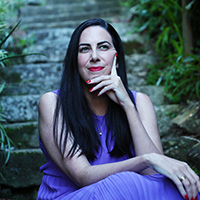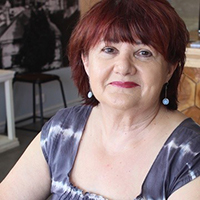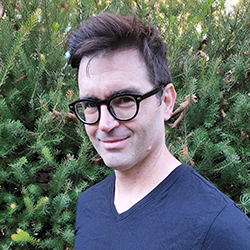Competitions and programs (112)
ABR Fellowships - FAQ
What is the ABR Fellowship program?
ABR Fellowships are intended to reward outstanding Australian writers, to enhance ABR through the publication of long-form journalism, and to advance the magazine’s commitment to ideas and critical debate. The Fellow will work closely with the Editor of ABR. The chosen Fellow will contribute three review essays and/or commentaries in the field of Australia history and culture. ABR will publish these articles in print and online. Each article will run from 1500 to 2000 words. The articles (agreed on with the ABR Editor) will be staggered over twelve months.
Who can apply for an Inglis Fellowship?
Any writer aged thirty-five and under is eligible to apply: scholars, academics, journalists, commentators, creative writers, etc. Applicants must be Australian citizens or have permanent resident status in Australia. ABR staff and board members are ineligible. Contributors to the magazine are encouraged to apply. We welcome applications from First Nations writers and those with diverse backgrounds.
Who can apply for a Science Fellowship?
Any writer is eligible to apply: scientists, scholars, academics, journalists, commentators, creative writers, etc. Applicants must be Australian citizens or have permanent resident status in Australia. ABR staff and board members are ineligible. Contributors to the magazine are encouraged to apply. We welcome applications from First Nations writers and those with diverse backgrounds.
How much are the Fellowships worth?
The Fellow will receive a total of $5,000.
I don’t know anything about ABR. May I still apply?
Applicants must demonstrate real familiarity with the magazine and convince the panel that their article would complement other writings in ABR and win us new readers. Applications that do not refer to the magazine, or demonstrate any awareness of ABR’s own needs and directions, are unlikely to be successful.
Are the Fellowships themed?
The ABR Inglis Fellow will contribute articles in the field of Australia history and culture. The ABR Science Fellow will contribute three reviews essays or commentaries over twelve months in the field of science and/or the history of science. This reflects the breadth of ABR’s interests and content.
Is it possible to write the article with a friend or colleague?
No. Single-author works only.
Is ABR looking for academic papers?
No. ABR is not an academic journal. We seek engaging literary journalism of the kind you will find in The New Yorker or the London Review of Books. Links to essays by past Fellows can be found here.
Are you looking for finished articles from applicants?
No. We seek cogent proposals for articles to be developed over the course of the Fellowship, in collaboration with the Editor. Unlike the Calibre Essay Prize, the Fellowship program is not for finished works.
How do I apply?
Applicants must read the guidelines of the Fellowship for which they are interested in applying and send us a succinct but comprehensive proposal (two pages maximum), plus a CV of no more than two pages. Note that we are looking for proposals – not finished articles or chapters. Applications must be received by the closing date of the relevant Fellowship. There is no application fee. Applicants are strongly encouraged to discuss their proposals with the Editor before submitting them: (03) 9699 8822 or This email address is being protected from spambots. You need JavaScript enabled to view it.
How are Fellows selected?
The Fellowship will be awarded by Australian Book Review on the advice of a committee including the Editor of ABR. No correspondence will be entered into once the decision has been announced. ABR reserves the right not to award a Fellowship during a particular round.
Are the ABR Fellows expected to complete their projects at the ABR office in Melbourne?
No. Most of the editorial contact is via email or the telephone. Some meetings may be desirable during the course of the Fellowship. These are important collaborative partnerships between the magazine and the Fellows.
What kind of editorial support do Fellows enjoy?
We edit promptly, closely, and respectfully. ABR is committed to presenting the Fellow’s work in the best-possible form. The Editor is always available to discuss the project, to respond to ideas, and to read drafts. Peter Rose edits the articles in consultation with the Fellows, and each article is then proofread by at least three editors.
Where are the Fellowship articles published?
In the print and digital editions of ABR.
Would I be required to take part in the promotion of the published article?
Yes.
Current Fellowships - Science
The ABR Science Fellowship
The ABR Science Fellowship offers a unique opportunity to make a substantial contribution to the magazine in the area of science writing. Applications are now open and close on January 20. The fellowship is intended to advance the careers of science writers and to augment ABR’s coverage of science and the history of science. The chosen Fellow will be able communicate sophisticated ideas in lucid and engaging language for a general audience.
What will the ABR Science Fellow contribute?
The Fellow will contribute three reviews essays or commentaries over twelve months in the field of science and/or the history of science. We expect that the Fellowship will become a regular program, complementing the ABR Fellowships, of which we have offered about 25 since 2001.
What will the ABR Science Fellow receive?
The Fellow will receive a total of $5,000, in three instalments, and will work closely with the ABR Editor, Peter Rose.
Who can apply?
Any writer is eligible to apply: scientists, scholars, academics, journalists, commentators, creative writers, etc. Applicants must be Australian citizens or have permanent resident status in Australia. ABR staff and board members are ineligible. Contributors to the magazine are encouraged to apply. We welcome applications from First Nations writers and those with diverse backgrounds.
How to apply?
Applicants are strongly encouraged to refer to the Frequently Asked Questions on our website. Applicants may wish to discuss their proposals with the Editor before finalising them: This email address is being protected from spambots. You need JavaScript enabled to view it.
The application should comprise a proposal of two pages plus a short CV. Applicants should summarise the following:- their interest in the magazine and its direction;
- how their contributions will advance ABR and attract new readers;
- the likely nature/scope/genre of the three articles. (We are mindful that the Fellowship may evolve throughout the year.)
Applicants should also attach two examples of their literary journalism. Applications must be emailed to This email address is being protected from spambots. You need JavaScript enabled to view it. by 5 pm on 20 January 2025 (AEDT). There is no application fee.
Familiarity with ABR
Applicants must demonstrate considerable familiarity with ABR – its style, its content, its direction. Visit our website to subscribe to print and/or digital.
Selection process
ABR Editor Peter Rose will choose the Fellow with legendary science broadcaster Robyn Williams, who has hosted The Science Show on ABC Radio National since 1975. We expect to name the Fellow within four weeks of closure. No correspondence will be entered into once the decision has been announced. ABR reserves the right not to award a Fellowship in a particular round.
How can I find out about past ABR Fellowships?
Information about the previous Fellowships is available here.The ABR Science Fellowship is supported by a bequest from Dr Ann Moyal AM (1926-2019), a historian noted for her work in the history of science.
ABR welcomes entries in the 2025 Calibre Essay Prize, worth $10,000. The Calibre Prize is open to all essayists writing in English. We seek essays of between 2,000 and 5,000 words on any subject. We welcome essays of all kinds: personal or political, literary or speculative, traditional or experimental. Founded in 2007, the Calibre Prize is one of the world’s leading prizes for a new non-fiction essay.
Status: Open for entries.
Total Prize money: $10,000
Dates: 28 October 2024 – 28 January 2025, 11:59 pm AEST
Judges: Georgina Arnott, Theodore Ell, and Geordie Williamson
Past winners
Click the link for more information about past winners and to read their essays.
FAQs and Terms and Conditions
Please read our Frequently Asked Questions before contacting us with queries about the Calibre Prize.
Before entering the Calibre Essay Prize, all entrants must read the Terms and Conditions.
Exclusivity
Entries may be submitted elsewhere during the judging of the Calibre Prize. If the essay(s) are longlisted by ABR, the entrant will have 24 hours to decide if they wish to withdraw their essay elsewhere or from the Calibre Prize. Exclusivity is essential for longlisted essays, and we require confirmation of such for all longlisted essays.
The overall winning essay will be published in the first half of 2025, followed by the runners-up.
Entry fees
Current ABR subscribers: $20
Standard/non subscribers: $30*
*All non-subscribers will automatically receive four-month digital access to ABR free of charge.
Entry + subscription bundles
Entry + 1-year digital subscription: $100
Entry + 1-year print subscription (Australia): $130
Entry + 1-year print subscription (NZ and Asia): $220
Entry + 1-year print subscription (Rest of World): $240
Those who purchase a subscription while entering will be able to submit subsequent entries at the subscriber rate ($20).
ABR thanks founding Patrons Mary-Ruth Sindrey and Peter McLennan for their continuing support for the Calibre Essay Prize.
2025 Calibre Essay Prize Judges
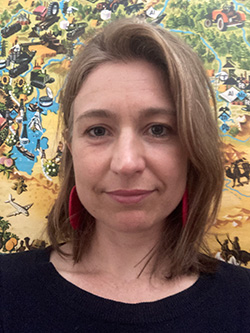 Georgina Arnott has been Assistant Editor at Australian Book Review since 2022. She is the author of The Unknown Judith Wright (UWAP, 2016), shortlisted for the National Biography Award, Judith Wright: Selected Writings (La Trobe University Press, 2022), and numerous book chapters, essays, and articles in the field of Australian literary studies, history and biography. Georgina is a former judge of the National Biography Award (2018, 2019), an ABC Top 5 Humanities Scholar (2021), and a Rockefeller Archive Center fellow (2024).
Georgina Arnott has been Assistant Editor at Australian Book Review since 2022. She is the author of The Unknown Judith Wright (UWAP, 2016), shortlisted for the National Biography Award, Judith Wright: Selected Writings (La Trobe University Press, 2022), and numerous book chapters, essays, and articles in the field of Australian literary studies, history and biography. Georgina is a former judge of the National Biography Award (2018, 2019), an ABC Top 5 Humanities Scholar (2021), and a Rockefeller Archive Center fellow (2024).
 Theodore Ell is an honorary lecturer in literature at ANU. He won the 2021 Calibre Essay Prize for ‘Façades of Lebanon’, an essay about surviving the Beirut port explosion of 2020, and his memoir of revolution and crisis in Beirut, Lebanon Days, was published in July 2024. His poetry collection Beginning in Sight shared the Anne Elder Award in 2022. Theodore's essays and poetry have been published in Australia, the UK, Italy and Lebanon. He lives in Canberra.
Theodore Ell is an honorary lecturer in literature at ANU. He won the 2021 Calibre Essay Prize for ‘Façades of Lebanon’, an essay about surviving the Beirut port explosion of 2020, and his memoir of revolution and crisis in Beirut, Lebanon Days, was published in July 2024. His poetry collection Beginning in Sight shared the Anne Elder Award in 2022. Theodore's essays and poetry have been published in Australia, the UK, Italy and Lebanon. He lives in Canberra.
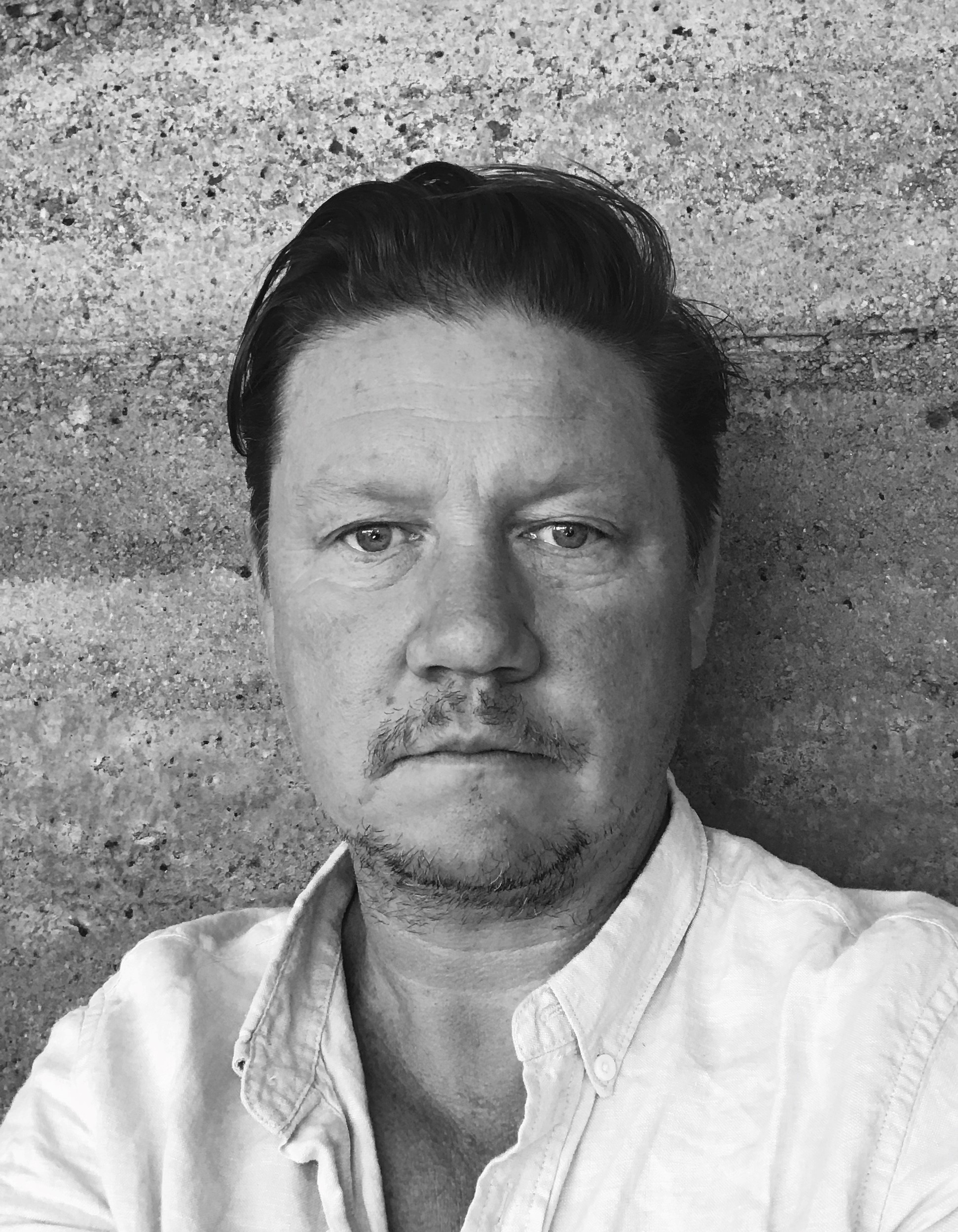 Geordie Williamson has worked as a critic for a quarter of a century. He won the Pascall prize for arts criticism, edited Best Australian Essays, published a book, The Burning Library, on neglected figures from Ozlit, edited Tasmania's Island magazine, and has been Chief literary critic of The Australian since 2008. Latterly he has worked as a publisher at Pan Macmillan, where he mainly concentrates on the Picador imprint. He has two books of his own forthcoming: a monograph on Alexis Wright for Black Inc.'s Writers on Writers series, and a work of non-fiction about his Scottish family's long association with Easter Island.
Geordie Williamson has worked as a critic for a quarter of a century. He won the Pascall prize for arts criticism, edited Best Australian Essays, published a book, The Burning Library, on neglected figures from Ozlit, edited Tasmania's Island magazine, and has been Chief literary critic of The Australian since 2008. Latterly he has worked as a publisher at Pan Macmillan, where he mainly concentrates on the Picador imprint. He has two books of his own forthcoming: a monograph on Alexis Wright for Black Inc.'s Writers on Writers series, and a work of non-fiction about his Scottish family's long association with Easter Island.
The 2024 ABR Elizabeth Jolley Short Story Prize Shortlist
Australian Book Review is delighted to announce the shortlisted authors of this year’s ABR Elizabeth Jolley Short Story Prize: Kerry Greer, Shelley Stenhouse, and Jill Van Epps. The winner will be announced at Gleebooks on Thursday, 15 August, and will receive $6,000
The 2024 Jolley Prize was judged by Patrick Flanery (SA), Melinda Harvey (Vic) and Susan Midalia (WA). The judges’ report, as well as the full longlist, can be found below.
Each of the shortlisted stories are published in the 2024 August issue (purchase single issues here). ABR extends a warm congratulations to Kerry Greer, Shelley Stenhouse, and Jill Van Epps, as well as to the longlisted entrants. Thank you to all who entered this year’s prize. We look forward to receiving your entries next year.
Shortlisted
Kerry Greer
for ‘First Snow’
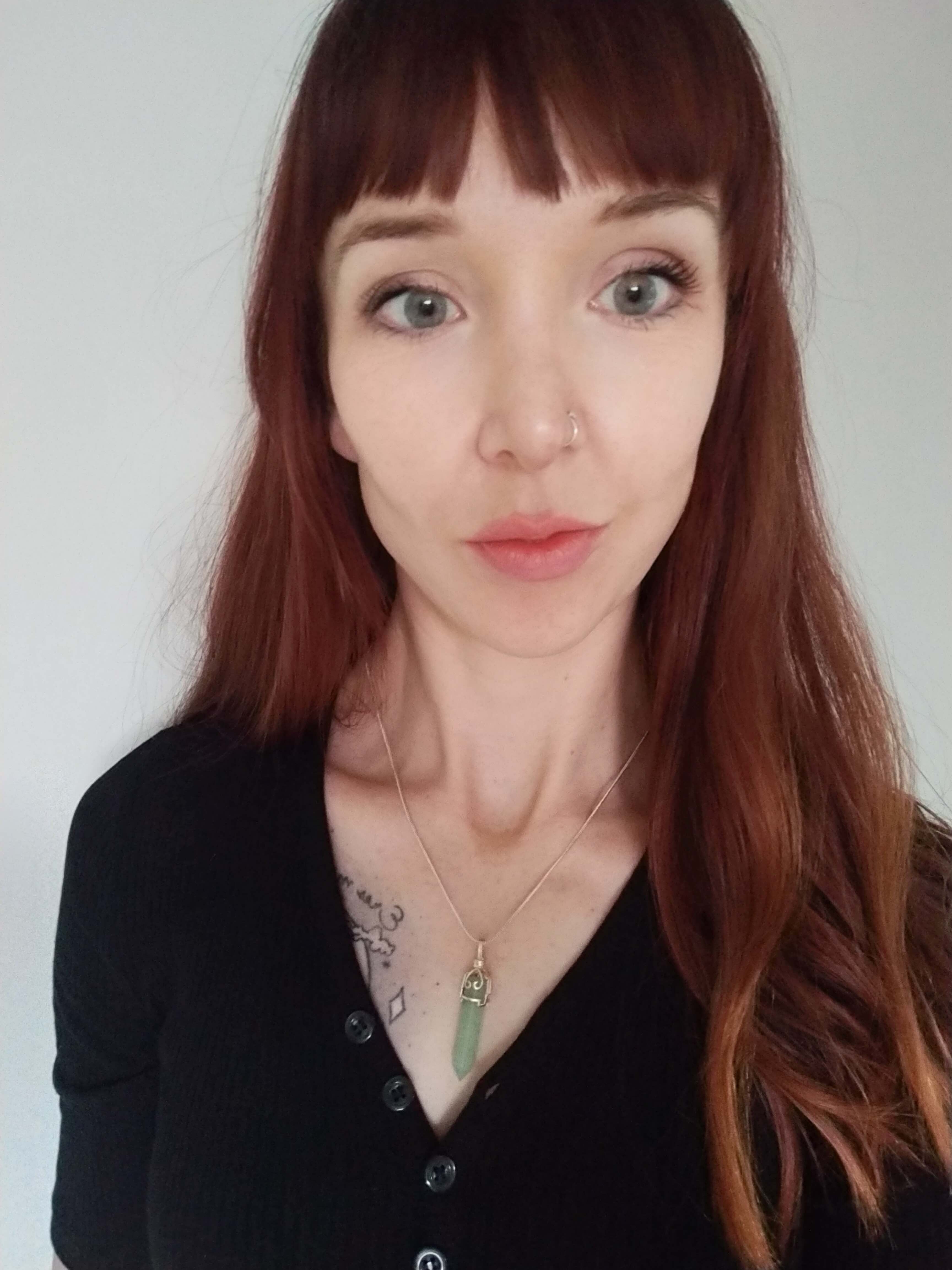 Kerry Greer is an Irish-Australian poet and writer. She received the Venie Holmgren Prize for Environmental Poetry in 2021. Kerry has been shortlisted for the Calibre Essay Prize, the Woollahra Digital Literary Award, the Newcastle Poetry Prize, the ACU Poetry Prize, the Gwen Harwood Poetry Prize, and more. She holds an MFA in Poetry from Cedar Crest College. Her début poetry collection, The Sea Chest, was published by Recent Work Press in 2023.
Kerry Greer is an Irish-Australian poet and writer. She received the Venie Holmgren Prize for Environmental Poetry in 2021. Kerry has been shortlisted for the Calibre Essay Prize, the Woollahra Digital Literary Award, the Newcastle Poetry Prize, the ACU Poetry Prize, the Gwen Harwood Poetry Prize, and more. She holds an MFA in Poetry from Cedar Crest College. Her début poetry collection, The Sea Chest, was published by Recent Work Press in 2023.
Shortlisted
Shelley Stenhouse
for ‘M.’
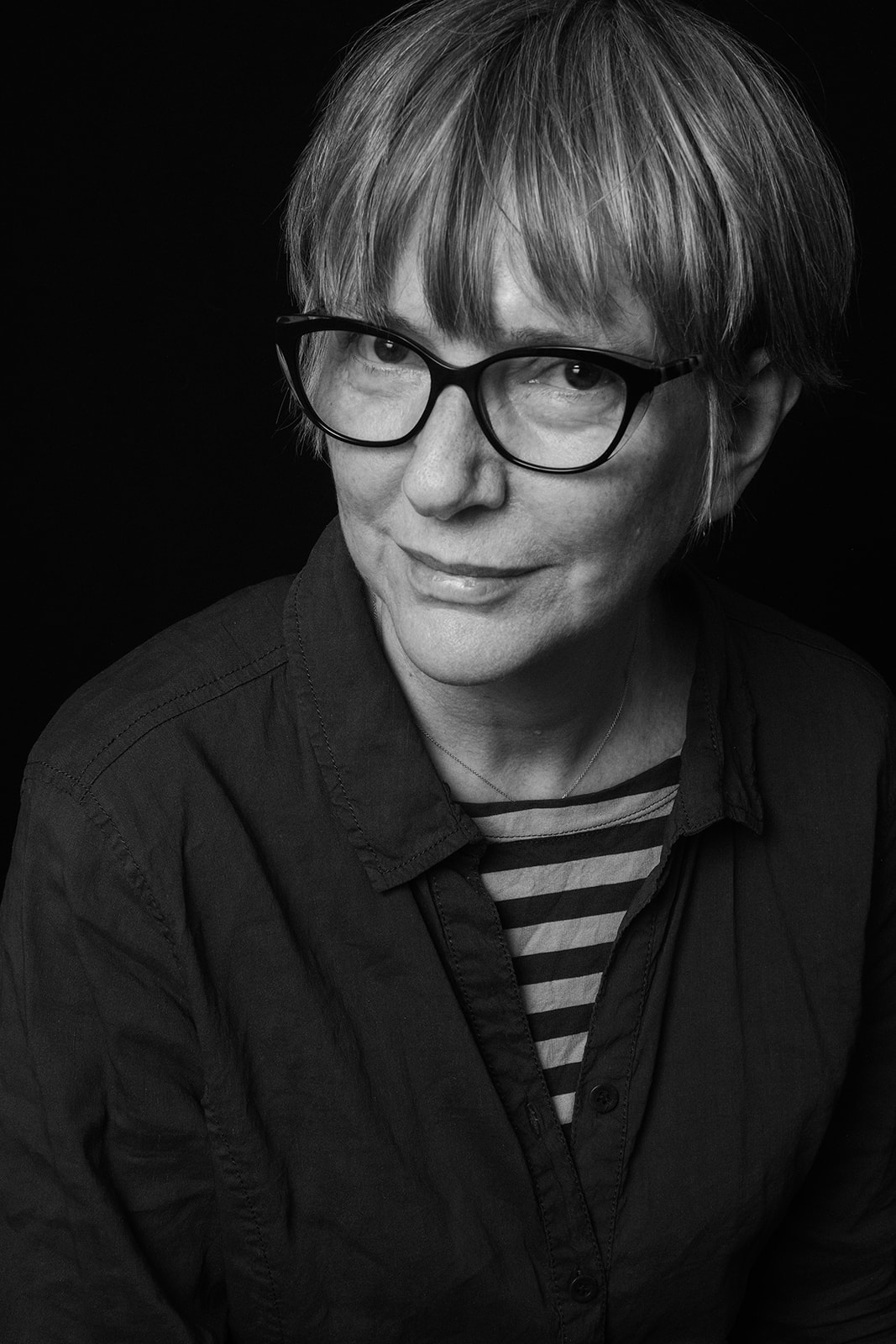 Shelley Stenhouse, a New York City-based poet and fiction writer, recently won the Palette Poetry Prize (judged by Edward Hirsch). Her collection, Impunity, was published by NYQ Books. She received a New York Foundation for the Arts Fellowship, an Allen Ginsberg Award, was a National Poetry Series finalist, and had two Pushcart Prize nominations (one by Tony Hoagland). Her work has appeared in New York Quarterly, Antioch Review, Prairie Schooner, Quarterly West, Nimrod, Margie, Third Coast, Brooklyn Rail, Washington Square, and Poetry After 9/11: An anthology of New York poets (among others).
Shelley Stenhouse, a New York City-based poet and fiction writer, recently won the Palette Poetry Prize (judged by Edward Hirsch). Her collection, Impunity, was published by NYQ Books. She received a New York Foundation for the Arts Fellowship, an Allen Ginsberg Award, was a National Poetry Series finalist, and had two Pushcart Prize nominations (one by Tony Hoagland). Her work has appeared in New York Quarterly, Antioch Review, Prairie Schooner, Quarterly West, Nimrod, Margie, Third Coast, Brooklyn Rail, Washington Square, and Poetry After 9/11: An anthology of New York poets (among others).
Shortlisted
Jill Van Epps
for ‘Pornwald’
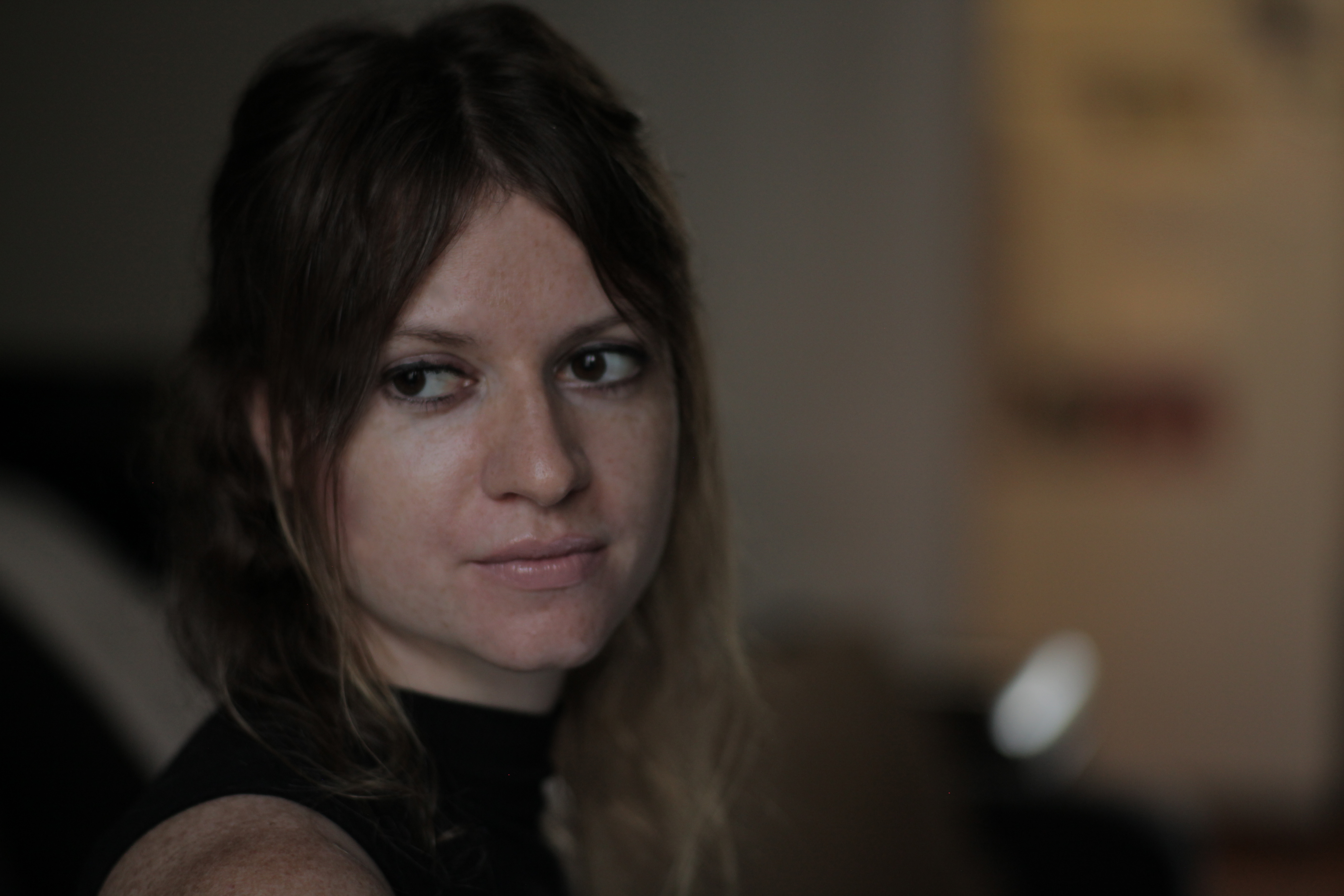 Jill Van Epps is a writer and filmmaker based in Brooklyn. She received her MFA in visual art from Goldsmiths College in London and studied video art in Berlin on a Fulbright fellowship. She was awarded the Margaret C. Annan Award for fiction and has had several poems published in journals, including The Pedestal Magazine, The Hiram Poetry Review, The Oyez Review, and Visions International. She is currently completing her first novel, Teenage Babylon.
Jill Van Epps is a writer and filmmaker based in Brooklyn. She received her MFA in visual art from Goldsmiths College in London and studied video art in Berlin on a Fulbright fellowship. She was awarded the Margaret C. Annan Award for fiction and has had several poems published in journals, including The Pedestal Magazine, The Hiram Poetry Review, The Oyez Review, and Visions International. She is currently completing her first novel, Teenage Babylon.
Full longlist
Deborah Callaghan (NSW) | Small Details of Travel
Lily Chan (Vic) | great flying soar and in command
Rhonda Collis (Canada) | Sage
Luca Demetriadi (Vic) | Olga’s AirPod
Dan Disney (South Korea) | what a what is (an autofiction)
Laura Elvery (QLD) | Transatlantic
Kerry Greer (WA) | First Snow
John Kinsella (WA) | Accordion to Bach
John Kinsella (WA) | Falling Up Stairs
Sam Reese (UK) | Softly, as in a Morning Sunrise
Faith Shearin (USA) | Natural Disasters
Shelley Stenhouse (USA) | M.
Jill Van Epps (USA) | Pornwald
Judges’ comments
There were more than 1,300 entries to this year’s Elizabeth Jolley Short Story Prize, which attracted writers from around the globe. The three judges were pleased to encounter a range of forms and genres, from literary realism to satire, speculative and historical fiction, dystopia, autofiction, and more experimental work. The stories explored themes of love, sex, and the pain of being alive, while many took an overtly political stance, addressing anxieties about climate change, social justice, and the rise of Artificial Intelligence.
The judges gravitated towards stories marked by an inventiveness of form and a distinctiveness of voice, stories that had something surprising to tell us and found imaginative ways of expressing ideas. The shortlisted stories negotiate the challenges of the form by skilfully combining brevity and depth, economy and resonance, offering refreshing perspectives on the world.
‘First Snow’ by Kerry Greer
‘First Snow’ subtly enacts a vulnerable young woman’s decision to leave her self-absorbed, manipulative partner, the father of her baby. Contrasting her banal relationship with a poetic response to the natural world and the enchantments of motherhood, the story reminds us that traditional domestic fiction, in the hands of an intelligent, empathic writer, can render the ‘ordinary’ both psychologically complex and deeply affecting.
‘M.’ by Shelley Stenhouse
In ‘M’, a middle-aged woman hooks up with a man whom she encounters through AA. Wittily told, this rollicking tale set in New York City is at once a character study of the garrulous oddball M and a tragicomic portrait of the narrator herself, whose compulsions and choices see her avoiding the everyday joys of her life as a mother.
‘Pornwald’ by Jill Van Epps
‘Pornwald’ is a puzzle that tests the limits of realism with an often riotously deadpan sense of humour. Characters move through a world that is superficially familiar, but as the story progresses, all may not be as it initially appears: this is an unpredictable place, wilder than the characters themselves realise. What would it mean, the story asks us to consider, if we were to wake up one day to our own unreality?
ABR warmly acknowledges the generous support of ABR Patron Ian Dickson, who makes the Jolley Prize possible in this lucrative form. We congratulate all the longlisted and shortlisted authors.
Previous winners
Subscribers to ABR can read previous prize-winning stories to the Jolley Prize. To read these stories, click here.
If you aren't a subscriber, digital subscriptions begin at only $10 per month. Click here to become an ABR subscriber.
2025 Peter Porter Poetry Prize
Entries for the 2025 Peter Porter Poetry Prize have now closed
First prize: AU$6,000
Four other shortlisted poets: AU$1,000
Closed: midnight AEST, 7 October 2024
Judges: Sarah Holland-Batt, Paul Kane, Peter Rose
Australian Book Review has now closed entries for the twenty-first Peter Porter Poetry Prize, which was open to all international poets from 1 July 2024 until midnight AEST, 7 October 2024. This year the Porter Prize is worth a total of AU$10,000 – with a first prize of $6,000.
Entries must be an original single-authored poem of not more than 60 lines written in English. Poems must not have been previously published. The five shortlisted poems will be published in the January–February 2025 issue and the winner will be announced at a ceremony later that month.
The Peter Porter Poetry Prize is one of Australia’s most lucrative and respected poetry awards. It honours the life and work of the great Australian poet Peter Porter (1929–2010), an honoured contributor to ABR for many years. All poets writing in English are eligible to enter.
Click here for more information about past winners and to read their poems.
Before entering the Porter Prize, all poets must read the Terms and Conditions. Please read our Frequently Asked Questions before contacting us with queries about the Porter Prize.
The Peter Porter Poetry is funded by the ABR Patrons, including support in memory of Kate Boyce.
2025 Porter Prize Judges
Sarah Holland-Batt is an award-winning poet, editor and critic. Her books have received a number of Australia’s leading literary awards, including the Stella Prize for her most recent book, The Jaguar, and the Prime Minister’s Literary Award for Poetry for her second volume, The Hazards. She is also the author of a book of essays on contemporary Australian poetry, Fishing for Lightning, collecting her poetry columns written for The Australian. She is presently Professor of Creative Writing at QUT.
 Paul Kane is Professor Emeritus at Vassar College. He has published eight collections of poems and a dozen other books. His awards include fellowships from the Guggenheim Foundation, the National Endowment for the Humanities, and the Bogliasco Foundation. He holds an honorary doctorate from La Trobe University and was awarded the Order of Australia in 2022. He divides his time between upstate New York and rural Victoria.
Paul Kane is Professor Emeritus at Vassar College. He has published eight collections of poems and a dozen other books. His awards include fellowships from the Guggenheim Foundation, the National Endowment for the Humanities, and the Bogliasco Foundation. He holds an honorary doctorate from La Trobe University and was awarded the Order of Australia in 2022. He divides his time between upstate New York and rural Victoria.
 Peter Rose has been Editor and CEO of Australian Book Review since 2001. His first poetry collection was The House of Vitriol (1990). Crimson Crop (2012) won a Queensland Award (Judith Wright Calanthe Award) and was shortlisted in the Prime Minister’s Literary Award. In November 2024, Pitt Street Poetry will publish his seventh collection, Attention Please!
Peter Rose has been Editor and CEO of Australian Book Review since 2001. His first poetry collection was The House of Vitriol (1990). Crimson Crop (2012) won a Queensland Award (Judith Wright Calanthe Award) and was shortlisted in the Prime Minister’s Literary Award. In November 2024, Pitt Street Poetry will publish his seventh collection, Attention Please!
2024 Jolley Prize Judges
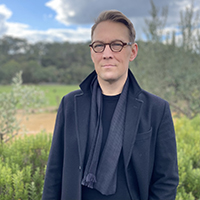 Patrick Flanery is the author of four novels, including Absolution (2012), which was shortlisted for the International IMPAC Dublin Literary award, and a memoir, The Ginger Child. He is Chair of Creative Writing at the University of Adelaide.
Patrick Flanery is the author of four novels, including Absolution (2012), which was shortlisted for the International IMPAC Dublin Literary award, and a memoir, The Ginger Child. He is Chair of Creative Writing at the University of Adelaide.
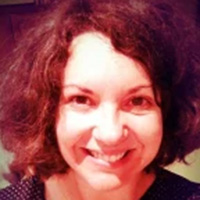 Melinda Harvey is Lecturer in English at Monash University. She has been a book critic for nearly twenty years, with reviews and commentary appearing in major Australian newspapers and magazines including Australian Book Review, The Australian, The Age, and the Sydney Review of Books. She was a finalist in the 2020 Pascall Prize for Arts Criticism.
Melinda Harvey is Lecturer in English at Monash University. She has been a book critic for nearly twenty years, with reviews and commentary appearing in major Australian newspapers and magazines including Australian Book Review, The Australian, The Age, and the Sydney Review of Books. She was a finalist in the 2020 Pascall Prize for Arts Criticism.
Susan Midalia is the author of three short story collections and two novels. Her new book, a collection of micro fiction called Miniatures, is published by Night Parrot Press. Susan also works as a freelance editor and a mentor to emerging writers, and has judged many writing competitions, including the ALS Gold Medal, the West Australian Premiers Book Award and the T.A.G Hungerford Award.
2024 ABR Elizabeth Jolley Short Story Prize
2024 ABR Elizabeth Jolley Short Story Prize
Australian Book Review is delighted to announce that Jill Van Epps from New York is the winner of the 2024 ABR Elizabeth Jolley Short Story Prize. Judges Patrick Flanery, Melinda Harvey and Susan Midalia chose Van Epps’s story ‘Pornwald’ from an international field of about 1,300 stories. Perth-based writer Kerry Greer was placed second for her story ‘First Snow’; and Shelley Stenhouse, another New Yorker, was placed third for ‘M.’. All three shortlisted stories appeared in the August issue, which can be purchased here. The Jolley Prize is worth a total of $12,500 and is for an original work of short fiction of between 2,000 and 5,000 words, written in English. This is the fifteenth time the Jolley Prize has run and it is one of the world’s leading prizes for short fiction.
Status: Closed, winner announced
Prize Money: $12,500 (first prize: $6,000, second prize: $4,000, third prize: $2,500)
Dates: Opened 16 January and closed 22 April
Judges: Patrick Flanery (SA), Melinda Harvey (Vic) and Susan Midalia (WA)
The judges said this of the three shortlisted stories:
‘Pornwald’ by Jill Van Epps (first place)
‘Pornwald’ is a puzzle that tests the limits of realism with an often riotously deadpan sense of humour. Characters move through a world that is superficially familiar, but as the story progresses, all may not be as it initially appears: this is an unpredictable place, wilder than the characters themselves realise. What would it mean, the story asks us to consider, if we were to wake up one day to our own unreality?
‘First Snow’ by Kerry Greer (second place)
‘First Snow’ subtly enacts a vulnerable young woman’s decision to leave her self-absorbed, manipulative partner, the father of her baby. Contrasting her banal relationship with a poetic response to the natural world and the enchantments of motherhood, the story reminds us that traditional domestic fiction, in the hands of an intelligent, empathic writer, can render the ‘ordinary’ both psychologically complex and deeply affecting.
‘M’ by Shelley Stenhouse (third place)
In ‘M’, a middle-aged woman hooks up with a man whom she encounters through AA. Wittily told, this rollicking tale set in New York City is at once a character study of the garrulous oddball M and a tragicomic portrait of the narrator herself, whose compulsions and choices see her avoiding the everyday joys of her life as a mother.
The judges said this of the overall field in 2024:
There were more than 1,300 entries to this year’s Elizabeth Jolley Short Story Prize, which attracted writers from around the globe. The three judges were pleased to encounter a range of forms and genres, from literary realism to satire, speculative and historical fiction, dystopia, autofiction, and more experimental work. The stories explored themes of love, sex, and the pain of being alive, while many took an overtly political stance, addressing anxieties about climate change, social justice, and the rise of Artificial Intelligence. The judges gravitated towards stories marked by an inventiveness of form and a distinctiveness of voice, stories that had something surprising to tell us and found imaginative ways of expressing ideas.
The longlist for the 2024 ABR Elizabeth Jolley Short Story is as follows (in alphabetical order by author surname):
Deborah Callaghan (NSW) | Small Details of Travel
Lily Chan (Vic) | great flying soar and in command
Rhonda Collis (Canada) | Sage
Luca Demetriadi (Vic) | Olga’s AirPod
Dan Disney (South Korea) | what a what is (an autofiction)
Laura Elvery (QLD) | Transatlantic
Kerry Greer (WA) | First Snow
John Kinsella (WA) | Accordion to Bach
John Kinsella (WA) | Falling Up Stairs
Sam Reese (UK) | Softly, as in a Morning Sunrise
Faith Shearin (USA) | Natural Disasters
Shelley Stenhouse (USA) | M.
Jill Van Epps (USA) | PornwaldMore information about the longlisted authors can be found below.
The 2024 Jolley Prize longlist
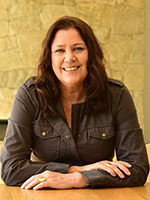 Photograph by Tony Mott‘Small Details of Travel’ by Deborah Callaghan
Photograph by Tony Mott‘Small Details of Travel’ by Deborah Callaghan
Deborah Callaghan was an interstate train stewardess, a librarian, and a freelance journalist before starting a thirty-five year publishing career, during which she was a publicist, a publisher and a literary agent. Her debut novel, The Little Clothes, was published in June this year by Penguin Books Australia and by Bedford Square Publishers in the UK in July.
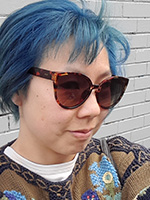 ‘great flying soar and in command’ by Lily Chan
‘great flying soar and in command’ by Lily Chan
Lily Chan was born in Kyoto, raised in Narrogin and resides in the western suburbs of Naarm (Melbourne). Her first book, Toyo: a memoir, was published by Black Inc. in 2012 and received the Peter Blazey Fellowship and the Dobbie Literary Award. It is a prescribed text for the HSC. Lily is working on a collection of essays on a childhood spent preparing for an apocalypse.
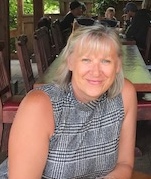 ‘Sage’ by Rhonda Collis
‘Sage’ by Rhonda Collis
Rhonda Collis is a writer based on Vancouver Island, British Columbia, Canada. She has her Master’s in Creative Writing from the University of British Columbia. Her work has won awards and has appeared in literary magazines and anthologies in Canada, the United States, and the United Kingdom. She has just finished a collection of stories.
 ‘Olga’s AirPod’ by Luca Demetriadi
‘Olga’s AirPod’ by Luca Demetriadi
Luca Demetriadi is a British/Australian writer and PhD student, currently living in Naarm (Melbourne). His research focus is independent and avant-garde Australian publishing. His fiction has appeared in The Stinging Fly.
 Photograph by Hyejin Yivadi Studio‘what a what is (an autofiction)’ by Dan Disney
Photograph by Hyejin Yivadi Studio‘what a what is (an autofiction)’ by Dan Disney
Dan Disney is based in Seoul, where he is a tenured professor with Sogang University’s English Literature program. In 2023, ‘periferal phantasma’ won the Peter Porter Poetry Prize; that poem forms part of a suite appearing in the forthcoming chapbook Thuggery, Buggery, Skullduggery Inc. (Red Letter Press, 2024).
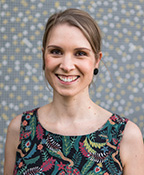 Photograph by Trenton Porter‘Transatlantic’ by Laura Elvery
Photograph by Trenton Porter‘Transatlantic’ by Laura Elvery
Laura Elvery is the author of two short story collections, Trick of the Light and Ordinary Matter, which won the Steele Rudd Award for a Short Story Collection at the 2021 Queensland Literary Awards and was shortlisted for the 2022 Barbara Jefferis Award. Her novel about Florence Nightingale will be published in 2025.
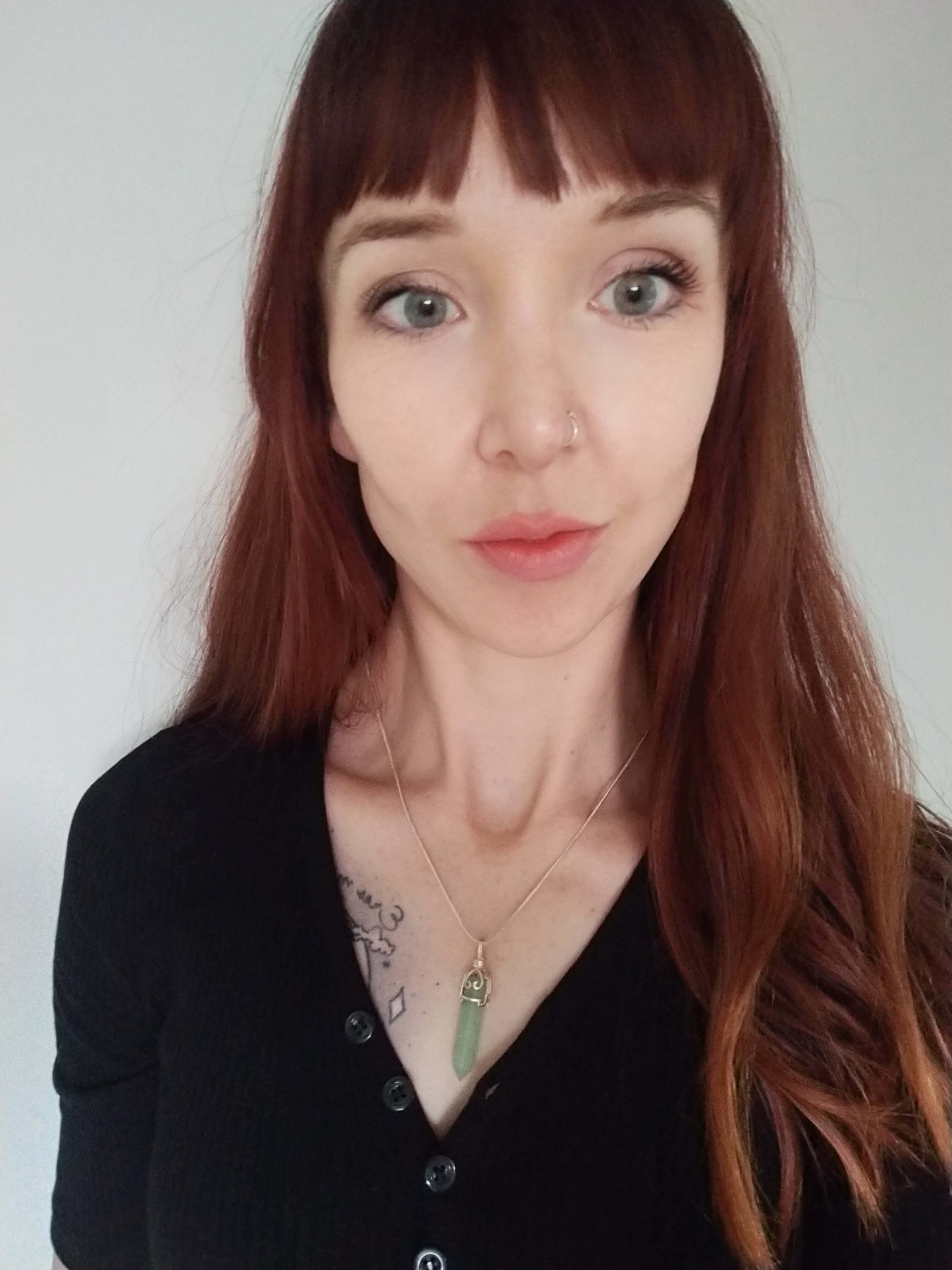 ‘First Snow’ by Kerry Greer (second place)
‘First Snow’ by Kerry Greer (second place)
Kerry Greer is an Irish-Australian poet and writer. She received the Venie Holmgren Prize for Environmental Poetry in 2021. Kerry has been shortlisted for the Calibre Essay Prize, the Woollahra Digital Literary Award, the Newcastle Poetry Prize, the ACU Poetry Prize, the Gwen Harwood Poetry Prize, and more. She holds an MFA in Poetry from Cedar Crest College. Her début poetry collection, The Sea Chest, was published by Recent Work Press in 2023.
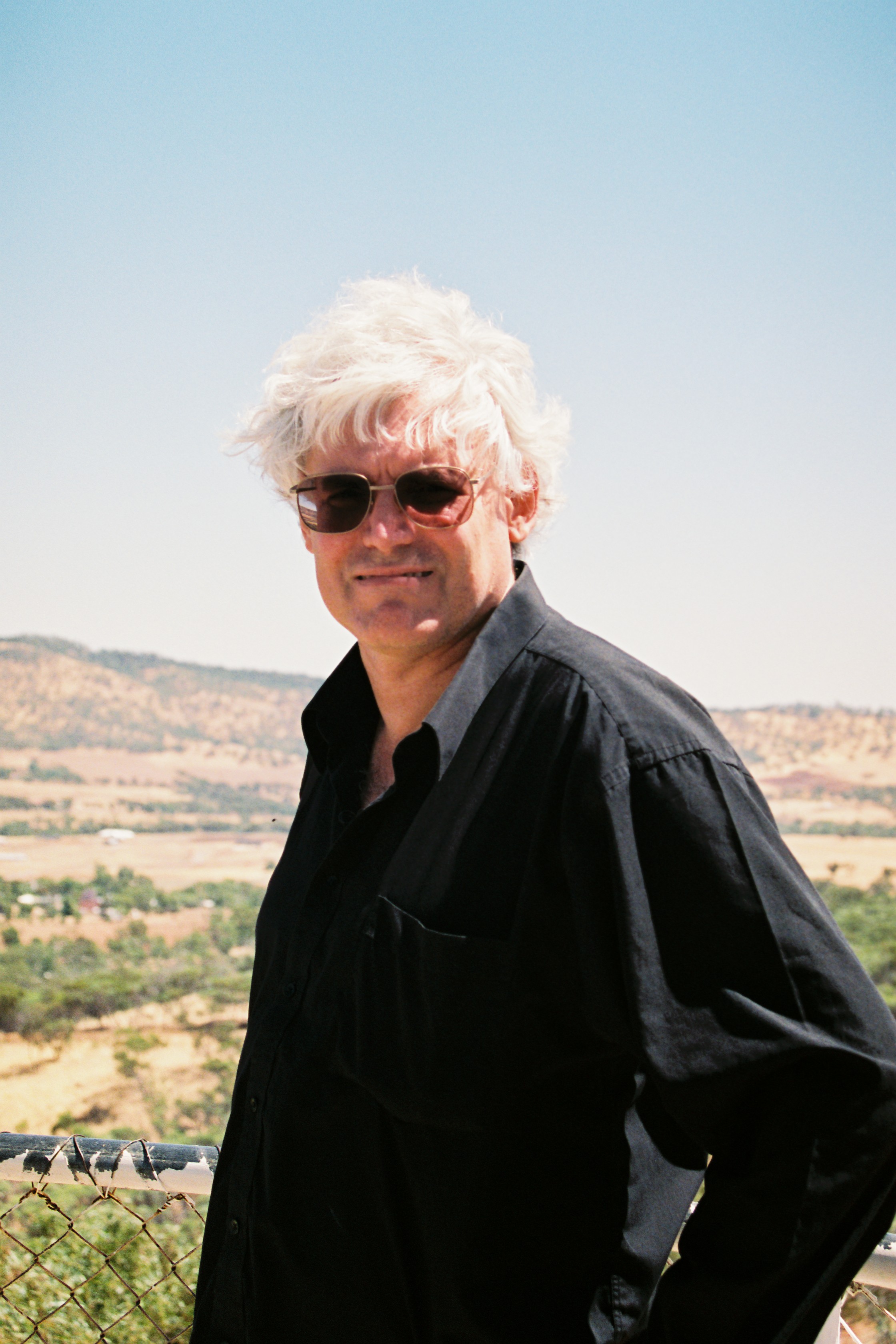 ‘Accordion to Bach’ and ‘Falling Up Stairs’ by John Kinsella
‘Accordion to Bach’ and ‘Falling Up Stairs’ by John Kinsella
John Kinsella is the author of over forty books. His poetry collections have won a variety of awards, including the Prime Minister's Literary Award for Poetry and the Christopher Brennan Award for Poetry. His volumes of stories include In the Shade of the Shady Tree (Ohio University Press, 2012), Crow’s Breath (Transit Lounge, 2015), and Old Growth (Transit Lounge, 2017). He lives with his family in the Western Australian wheatbelt. His new collection of stories, Beam of Light, is due out with Transit Lounge in September (2024).
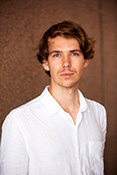 ‘Softly, as in a Morning Sunrise’ by Sam Reese
‘Softly, as in a Morning Sunrise’ by Sam Reese
Sam Reese is a short story writer and jazz critic from Aotearoa New Zealand. His short stories have won a number of prizes and have been collected in two volumes. As a critic, he has won the Arthur Miller Center first book award, and most recently has edited the notebooks of saxophonist Sonny Rollins. He spends his time between Wellington and York, where he heads the creative writing program at York St John University.
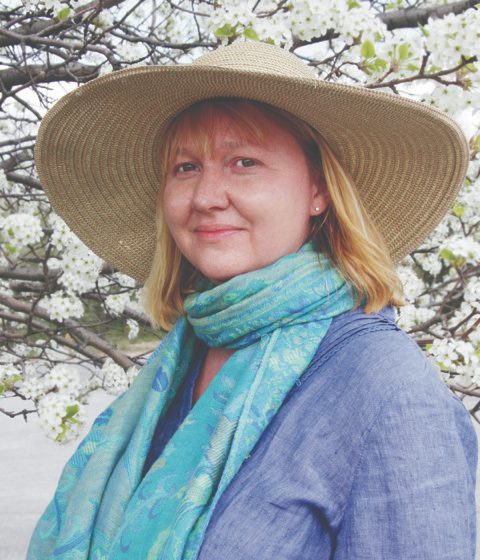 Photograph by Kerry Stavely‘Natural Disasters’ by Faith Shearin
Photograph by Kerry Stavely‘Natural Disasters’ by Faith Shearin
Faith Shearin’s seven books of poetry include: The Owl Question, Telling the Bees, Orpheus, Turning, Darwin’s Daughter, and Lost Language. Her poems have been read aloud on The Writer’s Almanac and included in American Life in Poetry. She has received awards from Yaddo,The National Endowment for the Arts, and The Fine Arts Work Center in Provincetown. Her essays and short stories have won awards from New Ohio Review, The Missouri Review, The Florida Review, and Literal Latte, among others. Two YA novels – Lost River, 1918 and My Sister Lives in the Sea – won The Global Fiction Prize and have been published by Leapfrog Press.
 Photograph by Reuben Radding ‘M.’ by Shelley Stenhouse (third place)
Photograph by Reuben Radding ‘M.’ by Shelley Stenhouse (third place)
Shelley Stenhouse, a New York City-based poet and fiction writer, recently won the Palette Poetry Prize (judged by Edward Hirsch). Her collection, Impunity, was published by NYQ Books. She received a New York Foundation for the Arts Fellowship, an Allen Ginsberg Award, was a National Poetry Series finalist, and had two Pushcart Prize nominations (one by Tony Hoagland). Her work has appeared in New York Quarterly, Antioch Review, Prairie Schooner, Quarterly West, Nimrod, Margie, Third Coast, Brooklyn Rail, Washington Square, and Poetry After 9/11: An anthology of New York poets (among others).
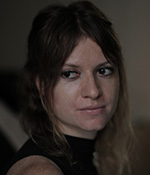 ‘Pornwald’ by Jill Van Epps (first place)
‘Pornwald’ by Jill Van Epps (first place)
Jill Van Epps is a writer and filmmaker based in Brooklyn. She received her MFA in visual art from Goldsmiths College in London and studied video art in Berlin on a Fulbright fellowship. She was awarded the Margaret C. Annan Award for fiction and has had several poems published in journals, including The Pedestal Magazine, The Hiram Poetry Review, The Oyez Review, and Visions International. She is currently completing her first novel, Teenage Babylon.
More information
Please read our Frequently Asked Questions and Terms and Conditions.
If you need to contact us, and these documents don’t answer your query, please call (03) 9699 8822 or email This email address is being protected from spambots. You need JavaScript enabled to view it..
Previous winners
Subscribers to ABR can read previous prize-winning stories to the Jolley Prize. To read these stories, click here.
If you aren’t a subscriber, digital subscriptions begin at only $10 per month. Click here to become an ABR subscriber.
Judges
This year’s Jolley Prize was judged by Patrick Flanery, Melinda Harvey and Susan Midalia.
Exclusivity
Entries may be offered elsewhere during the judging of the Jolley Prize. If an entrant is longlisted and has their story offered elsewhere, the entrant will have 24 hours to decide if they wish to withdraw their story on offer elsewhere or from the Jolley Prize. Exclusivity is essential for longlisted stories to remain in contention for shortlisting.
Please sign up to our free 'Prizes and Programs' newsletter for more information about the 2024 ABR Elizabeth Jolley Short Story Prize.
ABR warmly acknowledges the generous support of ABR Patron Ian Dickson AM, who makes the Jolley Prize possible in this lucrative form.
2024 Calibre Essay Prize Judges
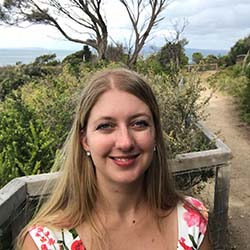 Amy Baillieu is Deputy Editor of Australian Book Review. She completed a Masters of Publishing and Communications at the University of Melbourne in 2011 and holds a Bachelor of Arts from the same university. Prior to becoming Deputy Editor of ABR in 2012, she worked in other editorial roles at the magazine and was Philanthropy Manager from 2011–12. She regularly reviews fiction for ABR and also works as a freelance editor.
Amy Baillieu is Deputy Editor of Australian Book Review. She completed a Masters of Publishing and Communications at the University of Melbourne in 2011 and holds a Bachelor of Arts from the same university. Prior to becoming Deputy Editor of ABR in 2012, she worked in other editorial roles at the magazine and was Philanthropy Manager from 2011–12. She regularly reviews fiction for ABR and also works as a freelance editor.
Shannon Burns is a freelance writer and member of the J.M. Coetzee Centre for Creative Practice. He is a former ABR Patrons' Fellow, and has published short fiction, poetry, and academic articles. He is the author of a memoir, Childhood (Text Publishing, 2022).
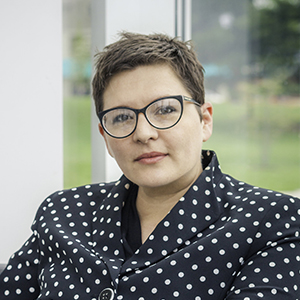 Beejay Silcox is an Australian writer and critic, and was the ABR Fortieth Birthday Fellow. Her literary criticism and cultural commentary appear in national arts publications such as ABR and Times Literary Supplement. Her award-winning short stories have been published at home and abroad.
Beejay Silcox is an Australian writer and critic, and was the ABR Fortieth Birthday Fellow. Her literary criticism and cultural commentary appear in national arts publications such as ABR and Times Literary Supplement. Her award-winning short stories have been published at home and abroad.


